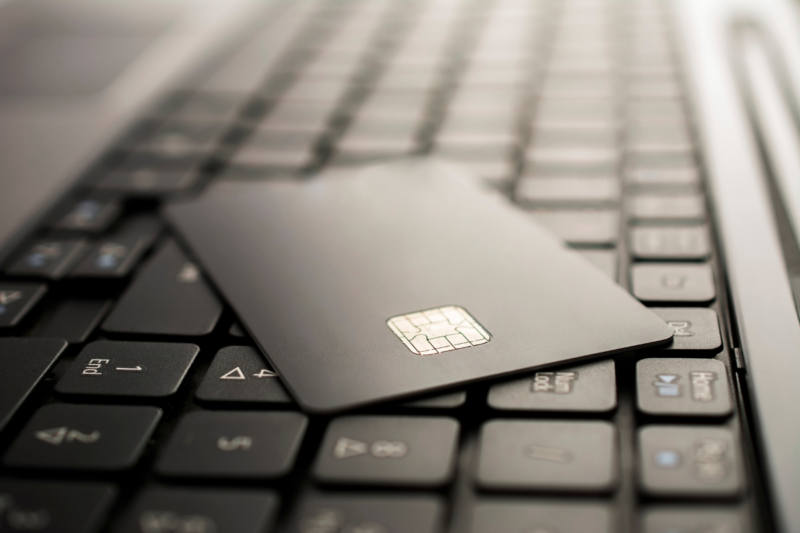If you take a few thousand dollars and buy stock through Robinhood, WeBull, or one of the other online brokerages, you’ll immediately be able to apply for a margin loan worth tens of thousands more.
But try taking the same amount of capital and use it to start a small business. Good luck finding a bank to lend to you.
Fewer than one in four businesses with $100,000 or less in revenue got bank funding in 2014-2019, according to a credit survey conducted by Federal Reserve banks. Credit access was a little better for firms with up to $1 million in revenue – about 40% obtained funding in recent years – but a majority of those firms had to use a personal guarantee or put up personal assets as collateral.
The pandemic triggered a further collapse in small business lending, despite a surge in deposits at banks that gave them ample capital to lend. As the economist Judy Shelton pointed out in a recent op-ed, banks increasingly are doing business with the Federal Reserve and U.S. government, rather than the American people. Rather than issuing loans, they’re buying up government bonds and government-backed mortgage securities, and parking cash at interest-bearing accounts at the Fed.
In the meantime, as small businesses starve for credit, large corporations are flush with cash and easy access to credit markets and bank loans. New issuance of investment-grade and high-yield bonds surged to historic levels in 2020.
Easy credit played a key role in helping the economy survive the pandemic. But the extremely loose credit conditions at the corporate end of the market – in contrast to tight conditions on Main Street – have altered a fundamental part of the business cycle. Historically, recessions played a role in weeding out inefficient or unnecessary businesses. Nowadays, thanks to cheap borrowing in the junk bond market, those same businesses can simply roll over their debt repeatedly, staggering along in zombie mode, no matter their losses.
WeWork is a good example of this. The firm has wracked up staggering losses, year after year, yet it continues to occupy valuable real estate and crowd out local competitors in the workspace business.
Not all areas of the market are showing signs of excess. Consumer credit declined last year as Americans used their credit cards less often to travel, eat out, or shop. They began spending more with debit cards, and household savings increased. Mortgage originations surged in 2020, but credit standards remained higher for homebuyers than they were before the 2007-2008 subprime mortgage financial crisis.
The average credit score in the U.S. rose to an all-time high of 710 in 2020, according to Experian. But online brokerages don’t report margin lending to credit bureaus, which means we may be flying blind to one of the economy’s biggest credit risks and potential bubbles. Retail investing through online brokerages has surged this year, enabled by the lifting of trading commissions and an upsurge in savings. According to FINRA, the regulator of brokerages, margin debt increased to $814 billion in February 2021, compared to $545 billion a year ago.
That’s roughly equivalent to the total U.S. credit card debt, which was $820 million at the end of 2020. Margin debt – also called leverage – is pumping up the valuations of speculative assets, from stocks to real estate to high-yield bonds and Bitcoin (which at one point recently surpassed $1 trillion in value).
In one sense, there’s nothing new about this: households have always lent to the business sector, albeit indirectly. They’ve done so by placing checking and savings deposits at banks, which then use that money for business loans. But in another sense, this kind of unmediated flow of credit and capital is revolutionary. It bypasses the money managers, banks, and pension funds that used to handle such money flows.
While that might look like an efficiency, its long-term impact is untested.
If there is a credit bubble among retail investors, it’s unlikely to pose systemic financial risk. Brokerages are willing to issue margin loans because the securities in their customers’ accounts are held as collateral. But when the market dips, that collateral drops in value, so the broker may sell off the account holder’s securities to ensure it recovers its loan.
This can have a cascading effect in stock markets.
It’ll also have real-world effects for the folks who really did think that GameStop was “going to the moon,” or that Tesla was worth $3,000 a share. Those investors will have lost months or years worth of savings, which they won’t be able to use as the economy reopens. And while that alone might not dampen the economic outlook, it certainly won’t help the recovery.
Disclaimer: Economic analysis and commentary reflect the views of the author. Not financial advice. © Honest Austin. Subscriber Content.
